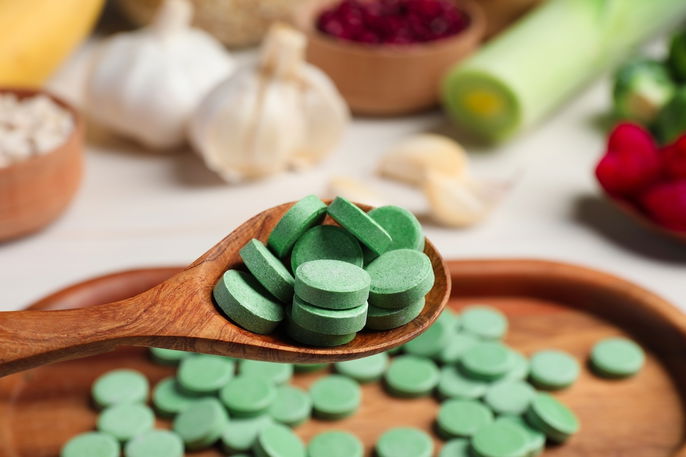Prebiotics are compounds that are present in some foods and supplements that the intestine cannot fully break down. They serve as substrates for certain microorganisms in the intestine, and promote the growth of healthy bacteria that are naturally present in the gut.
Consuming prebiotics regularly can help to boost immunity, improve vitamin and minerals absorption, keep the intestines healthy, and prevent the growth of harmful bacteria that causes infections.
Some natural prebiotics include fructooligosaccharides (FOS), galactooligosaccharides (GOS), inulin and lactulose. These can be found in foods such as whole wheat, onions, bananas, honey, garlic, chicory root or burdock, for example.

Health benefits
The benefits of prebiotics include
- Increasing bifidobacteria in the colon;
- Increasing the absorption of calcium, iron, phosphorus and magnesium;
- Increasing stool volume and the frequency of bowel movements;
- Reducing the duration of intestinal transit;
- Regulating blood sugar;
- Increasing satiety;
- Reducing the risk for colon and rectal cancer;
- Reducing the severity of inflammatory bowel disease, such as ulcerative colitis;
- Reducing cholesterol and triglyceride levels in the blood
- Boosting immunity
Prebiotics can especially be important for newborn gut health, and are often a main ingredient in breastmilk and infant formula. Adequate consumption can help to reduce diarrhea and allergies in newborns.
How they work
Prebiotics are compounds found in food that are not digested by the gut. They are beneficial as they can selectively promote the growth and activity of healthy gut bacteria. Studies show that prebiotics also help to control the multiplication of harmful bacteria in the gut.
Because prebiotics are not absorbed, they enter the large intestine, where they provide substrates, or food, for good bacteria. Soluble fibers that are consumed are fermented quickly by these bacteria, while insoluble fibers are fermented more slowly.
Generally, these substances act more frequently in the large intestine, although they can also interfere with microorganisms in the small intestine.
Prebiotic foods
Foods that contain prebiotics include:
- Wheat, barley, rye and oats;
- Banana, green banana biomass, apple, currant and blackberries;
- Onion, asparagus, garlic and leek;
- Chicory root and dandelion leaves;
- Honey.
The prebiotics in these food are non-digestible carbohydrates, like lactulose, inulin and oligosaccharides, resistant starch, pectin and beta-glucans.
Prebiotics can also be ingested through food supplements, which are generally combined with probiotics.
What is the difference between prebiotic, probiotic and symbiotic?
While prebiotics are fibers that serve as food for bacteria and promote their survival and growth in the gut, probiotics are the good bacteria that live in the intestine. Learn more about the benefits of probiotics and which foods they are found in.
A synbiotic is a food or supplement that combines a probiotic and a prebiotic






























